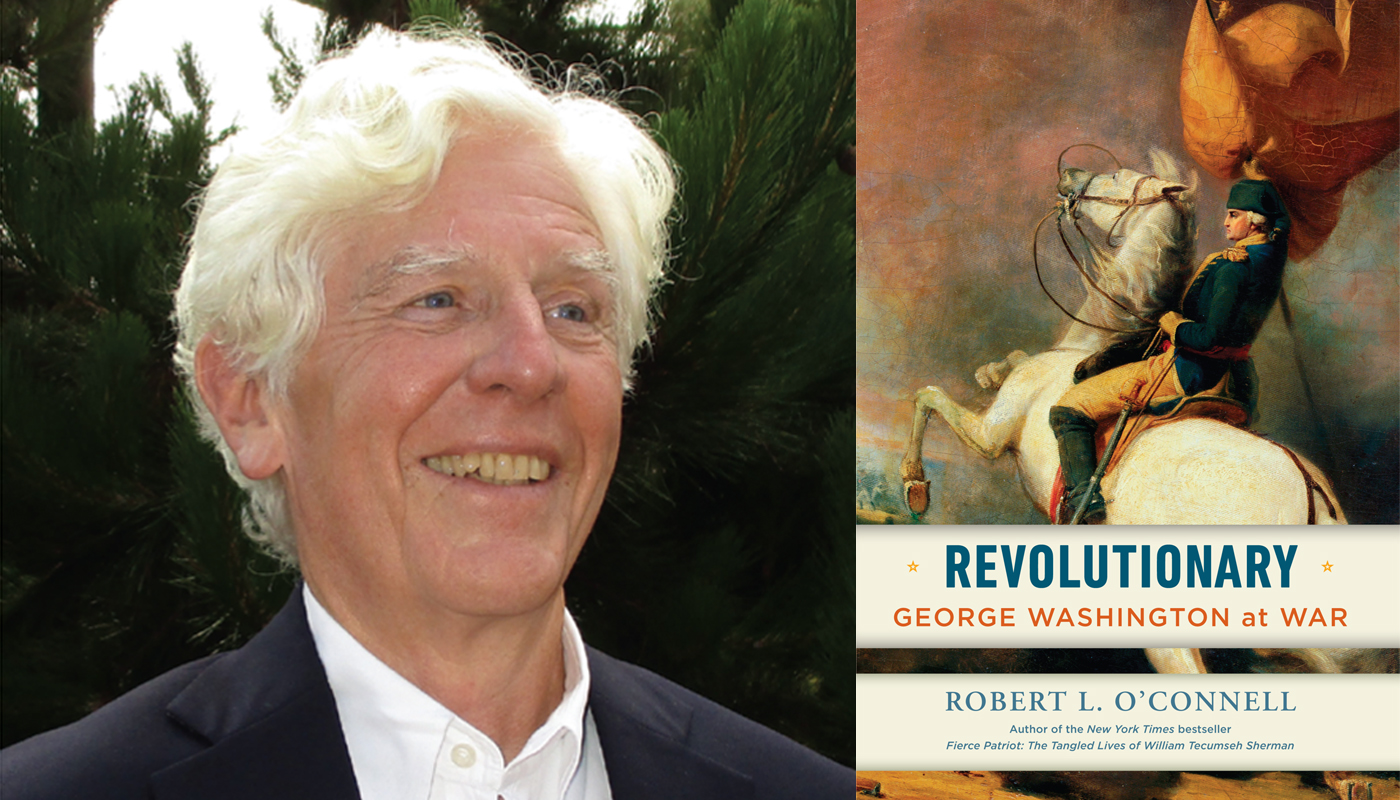
Join us for a book talk with Robert L. O’Connell, author of Revolutionary: George Washington at War. This event will be free and open to the public.
In a bold reappraisal of Washington as a young soldier destined to be a legendary general, an acclaimed military historian brings to life the man who took on the British and through his leadership came to define the American character.
How did George Washington become an American icon? Robert O’Connell, bestselling author of Fierce Patriot: The Tangled Lives of William Tecumseh Sherman, introduces us to Washington before he was Washington: a young soldier, champing at the bit for a commission in the British army, frustrated by his position as a minor Virginia aristocrat. Fueled by ego, he led a disastrous expedition in the Seven Years War, but then the commander grew up. We witness George Washington take up politics and join Virginia’s colonial governing body, the House of Burgesses, where he became ever more attuned to the injustices of life under the British Empire and the paranoid, revolutionary atmosphere of the colonies. When war seemed inevitable, he was the right man—the only man—to lead the nascent American army.
In his trademark conversational, witty style, Robert O’Connell has written a compelling reexamination of General Washington and his revolutionary world. He cuts through enigma surrounding Washington to show how the general made all the difference and became a new archetype of revolutionary leader in the process.
"Given the amount of ink spilled over the years, it is not easy to offer a fresh look at George Washington’s leadership role during the war for American independence. But Robert L. O’Connell has done it in Revolutionary. The title announces the insight, which is the otherwise uncontrollable political and military energies released by the war that Washington was able to orchestrate."
—Joseph J. Ellis, author of American Dialogues: The Founders and Us
Robert L. O’Connell was born in New York City in 1944. He grew up on Long Island, then went on to college at Colgate University. But his real life began when he moved to Charlottesville to study history at UVA in 1966. There, he met his wife Benjie and received his PhD in 1974. Shortly after, he was hired by the Foreign Science and Technology Center, now NGIC, and worked there for thirty years, before becoming a professor as the Naval Postgraduate School. During this time, he and his wife raised two girls (Jessica and Lucy, who also went to UVA), and wrote nine published books.